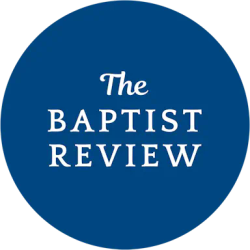Over the last year, I made no secret about my opposition to the Law Amendment. As I stated in an article I wrote in March, my issue with the amendment was not theological or ecclesiological; I fully affirm Article VI of the Baptist Faith & Message 2000, which states that “the office of pastor/elder/overseer is limited to men as qualified by Scripture.” I voted to cease cooperation with Saddleback last year, and with FBC Alexandria this year (full disclosure: I mismarked my ballot on the Fern Creek vote last year and had to throw it away). And though it failed to clear the two-thirds bar it needed to be ratified, proponents are correct when they point out that a significant majority—61%—of the Convention was in favor of the amendment.
For those of us who voted against the Law Amendment and affirm complementarianism, practice it in our churches, and desire for it to be practiced similarly in all Convention churches, where do we go from here—especially as we see others arguing and practicing positions that outright reject the Baptist Faith & Message?
If we’re going to continue to cease cooperation with genuinely egalitarian churches—and I think we should—it would help to categorize our churches in such a way that we can clearly understand the various positions within the Convention as we maintain both doctrinal clarity and missional unity.
Let me outline five different categories of churches:
1. Full Complementarian
Full complementarians reserve both the function and title of pastor/elder/overseer for men. Women do not preach in the corporate gathering and are not ordained, though they may serve on staff in non-pastoral roles. While the application of this conviction may vary (such as whether a woman can lead a small group or serve as a deacon), the commitment to the conviction is the same: these churches embrace God’s good gift of gender in the life of his church. The vast majority of the churches in our Convention fall into this category, including my own.
2. Functional Complementarian
Functional complementarians reserve the function of pastor/elder/overseer for men but utilize the title “pastor” for women who, in a full complementarian church, would be called something like “minister” or “director.” These churches would look identical in practice to those in category 1, but for cultural or pragmatic reasons utilize the title pastor more broadly. Most succinctly, the only thing a functional complementarian church would need to do to become a full complementarian church is change the titles of the women on their staff.
3. Closet Egalitarian
Closet egalitarians are willing to have women function or be employed as any kind of pastor/elder/overseer, though they may not currently engage in that practice. Women likely do not preach in the corporate gathering and are not ordained, but such a church would have no problem with either practice. A category 3 church may look like a category 1 or 2 church at first glance (perhaps with women on staff who have the title pastor), but their theological commitments are vastly different, rejecting that Scripture makes a distinction between the roles of men and women in the church.
4. Functional Egalitarian
Functional egalitarian churches allow women to function as a pastor/elder/overseer, though they may or may not utilize the title “pastor” for women. In practice, a functional egalitarian church looks similar or identical to a full egalitarian church, though their nomenclature may lag. Women preach regularly in the corporate gathering and might be ordained in a church like this. (Think: Saddleback Church)
5. Full Egalitarian
Full egalitarians make no secret about their beliefs and practices. They believe women and men are indistinguishable in the church and employ women in any pastoral role without qualification. Women preach in the corporate gathering and are ordained. (Think: Fern Creek Baptist Church)
What of Category 2?
The Southern Baptist Convention has spoken with extreme clarity regarding churches with egalitarian beliefs and practices (categories 3-5), overwhelmingly voting to cease cooperation with such churches both at the messenger and Executive Committee levels. I fully expect us to continue doing that. But what of category 2?
Mike Law, who originally proposed the amendment in 2022, has asserted all along that his desire was to see churches either abandon their errant practices (including but not limited to category 2/nomenclature issues) or be removed from the fellowship of the SBC. Among other vocal proponents, however, category 2 has been treated with less consistency.
In an interview with Tom Ascol a few months ago, then-presidential candidate Dr. David Allen said, “The qualifications that Scripture gives are for senior pastors, elders, people in the role and office of a pastor. The Law Amendment itself would not address a nomenclature issue of someone who is a children’s director who is a woman and she’s called a children’s pastor.”
Earlier this month, in response to a question on Twitter about how the Law Amendment would be applied and how he would vote regarding a church with a woman children’s pastor, Southern Seminary professor Dr. Denny Burk said, “I would need to hear the case. I can imagine scenarios in which I would vote not to remove and obvious scenarios in which I would vote to remove. All of these churches aren't the same. They all aren't like FBC Alexandria. And the Law Amendment doesn't force us to vote one way or the other.”
To be fair to Dr. Allen, he has since reversed his position. But the point remains: even among some of its most ardent proponents, there has been confusion as to whether the Law Amendment would have affected churches in category 2, who have a nomenclature issue but are otherwise functioning identically to category 1 churches. According to Mike Law, it would have always resulted in the Convention ceasing to cooperate with such a church. Up until a couple of months ago, David Allen contended it would not affect any of these churches. And according to Denny Burk, it would sometimes affect these churches. If a proposal like this comes up again—which it likely will—this specific question needs more clarity.
Moving Forward
Earlier this week, a video made the rounds on Twitter in which a pastor lauded the defeat of the Law Amendment for reasons that don’t mirror my own. I know nothing more about this church than what is available in the video, but my guess is they land somewhere around category 3 or 4. Multiple pastors and Southern Baptists who were ardent proponents of the Law Amendment linked to that post, asking questions to those of us who voted against it and accusing us of wanting to make room for churches like this in the Convention.
To be clear: I have no desire to see an increase in egalitarian churches in our convention. Quite the opposite. I have had no hesitation in voting out egalitarian churches the last two years. And with or without the Law Amendment, the process to cease cooperation with such churches remains the same: an individual must first contact the church, then report them to the credentials committee. But for those like me who rejected the amendment but affirm complementarianism, where do we go from here?
1. Be cheerful in our complementarianism
Continue to advocate your theological and ecclesiological commitments and practice them in your local church. Advocate for the beauty of God’s good design for the home and church—the complementarity of men and women—as we make disciples and accomplish the mission of God together. As J.D. Greear recently wrote, “complementarianism has never been an ecclesiastical box we must check; rather, it’s a beautiful truth that God wove into creation.” Men and women are not interchangeable; God created us “male and female.” The distinction of roles between men and women is a feature, not a bug, and we should be unashamed in our advocacy of this good design.
2. Be committed to our convincing
Those of us who voted against the amendment—at least every person I personally know—are not secret egalitarians. We want churches to align their practices with Scripture and the Baptist Faith & Message. Those in categories 3-5 are unlikely to be persuaded, but we should contend with those in category 2 to change their nomenclature. If you have a relationship with someone who has such a practice, sit down and attempt to persuade them. In fact, this week I have had just such a conversation. This is what we said we wanted all along—to persuade from the Scriptures, rather than to pressure with an amendment.
3. Be consistent with our convictions
There should be little joy in ceasing cooperation with partner churches. It may be a necessary step when churches flout Scripture and flaunt their rejection of our confession, but we should not exult in it. That doesn’t mean we shouldn’t hold a firm line when it comes to churches who are genuinely out of step with our faith and practice. When those instances arise, we must choose to go our separate ways.
4. Be charitable in our cooperation
The conversation has already begun regarding whether the Law Amendment, or a version of it, will arise again. As a Southern Baptist who welcomes and celebrates the ability of a single messenger to pull the levers of our polity and advocate for their position—even a position that recently failed—I have no problem with that. If it does, however, I hope that brothers and sisters on both sides of the recent debate will be willing to come to the table in the pursuit of unity. Might there be a proposal that 90% or more of us could support? I would sit down and talk with any Southern Baptist of goodwill who desires to protect the Convention from the threat of encroaching egalitarianism. Does that willingness entail that we will all walk away with the exact same strategy on how to move forward? Of course not. But it doesn’t mean we shouldn’t try.
Conclusion
Grant Castleberry wrote an article earlier this week regarding this conversation, and while I don’t agree with everything he wrote, he made some points I sympathize with. For one, I don’t want to be debating whether women can serve as senior pastors in ten years, or whether we will abandon the historic, orthodox Christian view of sexuality and marriage. I didn’t vote against the Law Amendment with the intent of inviting those conversations, and I believe an ongoing posture of doctrinal vigilance will prevent us from ending up there.
We have now ceased cooperation with multiple churches over the issue of egalitarianism, irrespective of size, historic connection to the Convention, financial contribution, or perceived influence. That’s a relatively new posture for the Convention, and one I celebrate. I unapologetically want us to be a more complementarian Convention, not less, and those actions speak most profoundly to the reality of our theological and ecclesiological commitments.
As I’ve said for over a year, find a genuinely egalitarian church in our Convention and you’ll have my vote to cease cooperation with them. In the meantime, let’s continue to cooperate while we hold fast to Scripture and our confession.
Editor's Note: As a part of its commitment to fostering conversation within the Southern Baptist Convention, the Baptist Review may publish editorials that espouse viewpoints that are not necessarily shared by the TBR team or other contributors. We welcome submissions for responses and rebuttals to any editorials as we seek to host meaningful conversations about the present and future of our convention.


